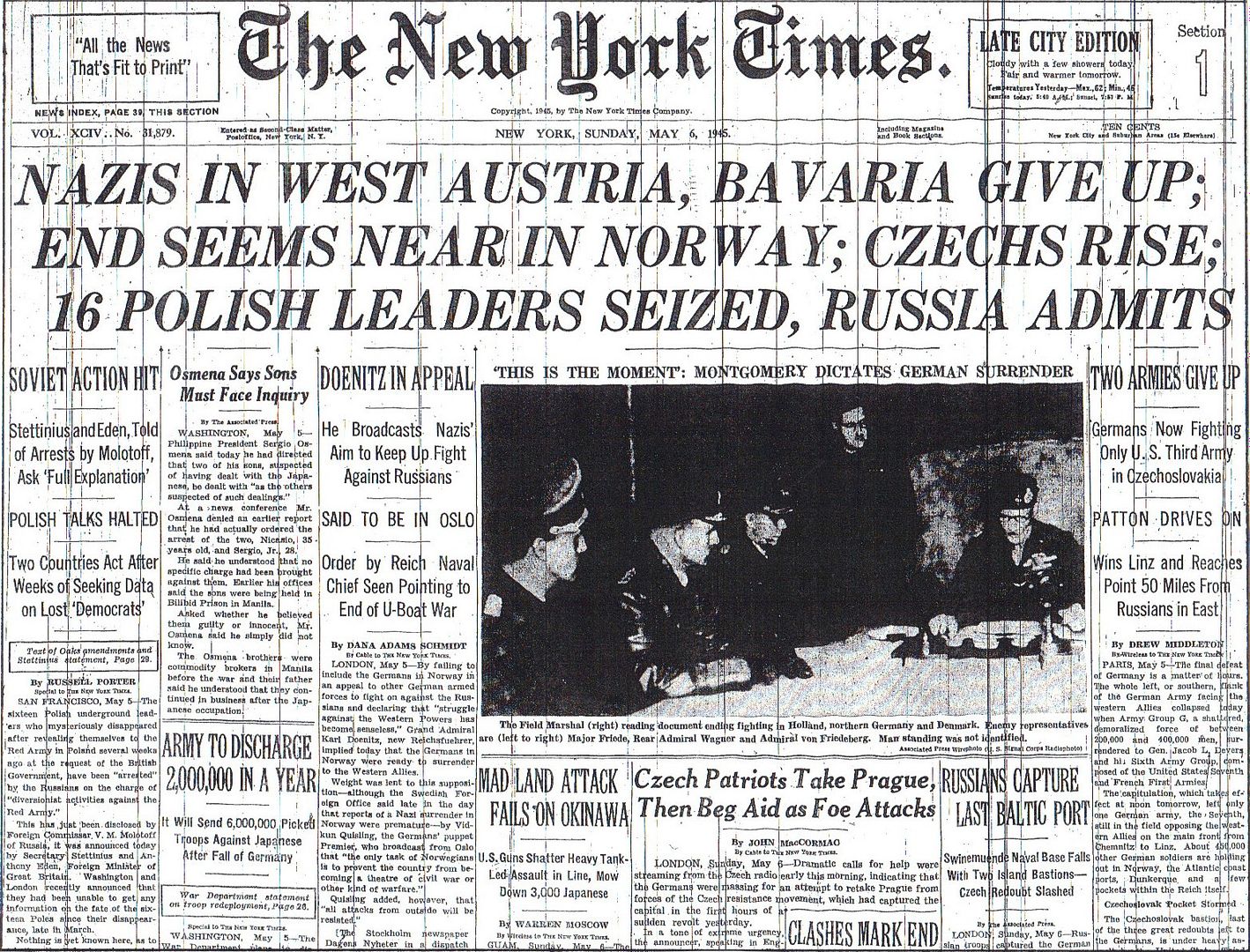
Posted on 05/06/2015 4:29:56 AM PDT by Homer_J_Simpson

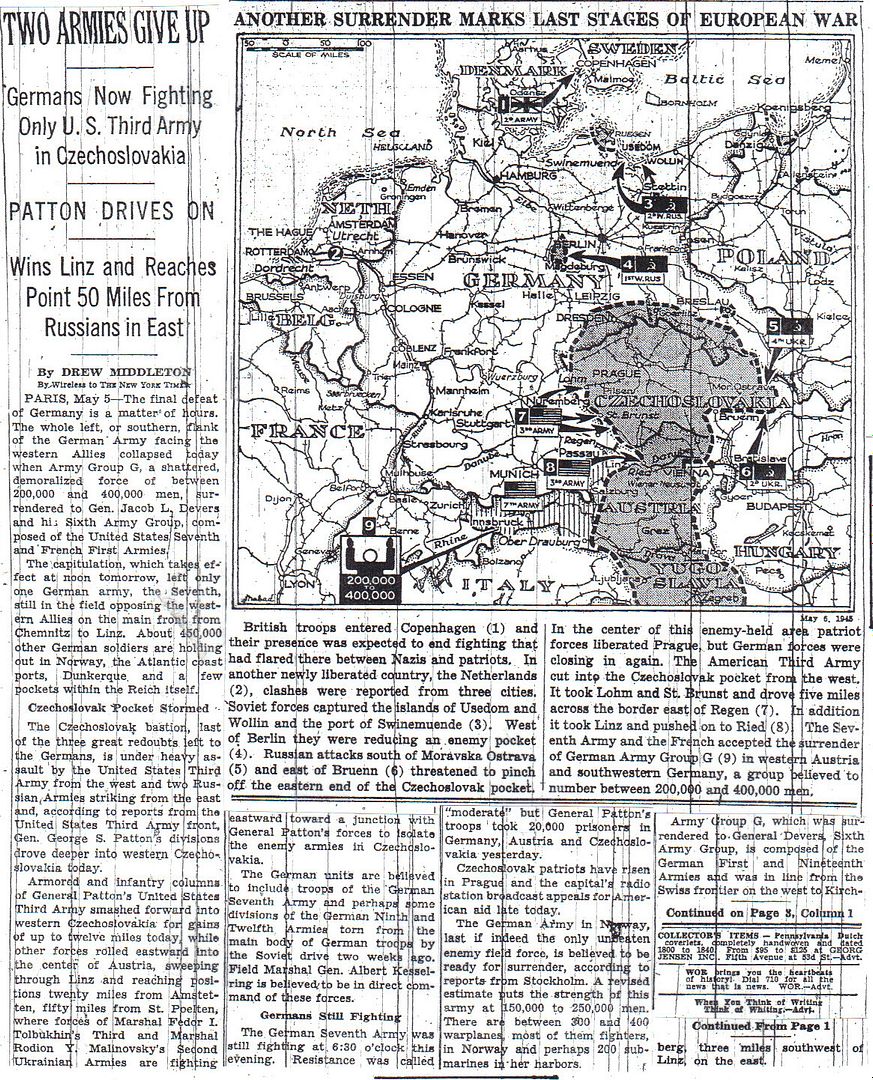
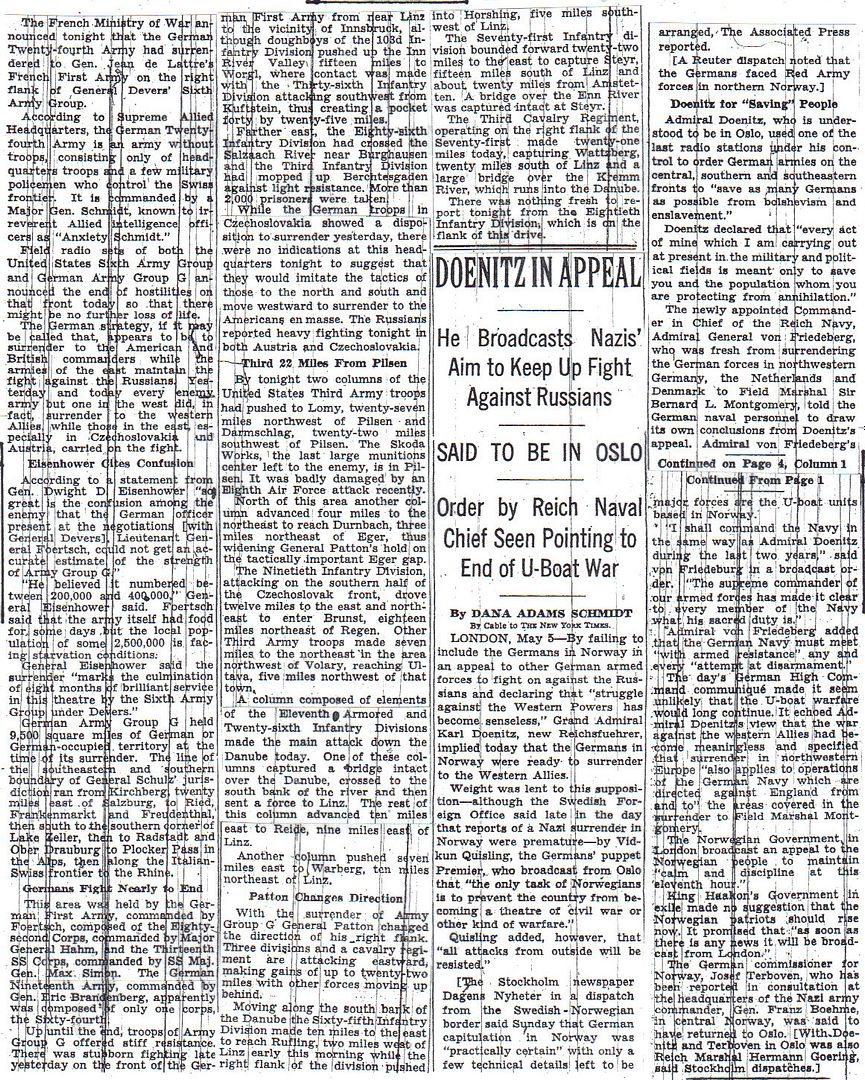
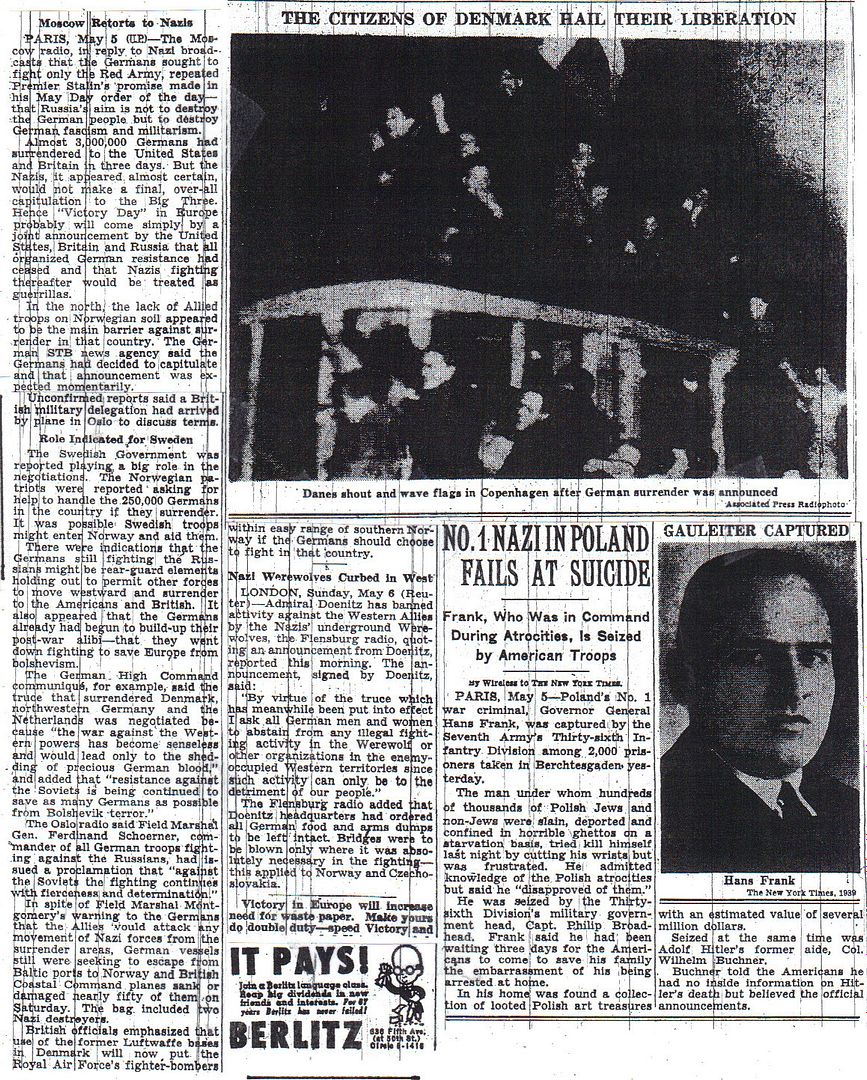
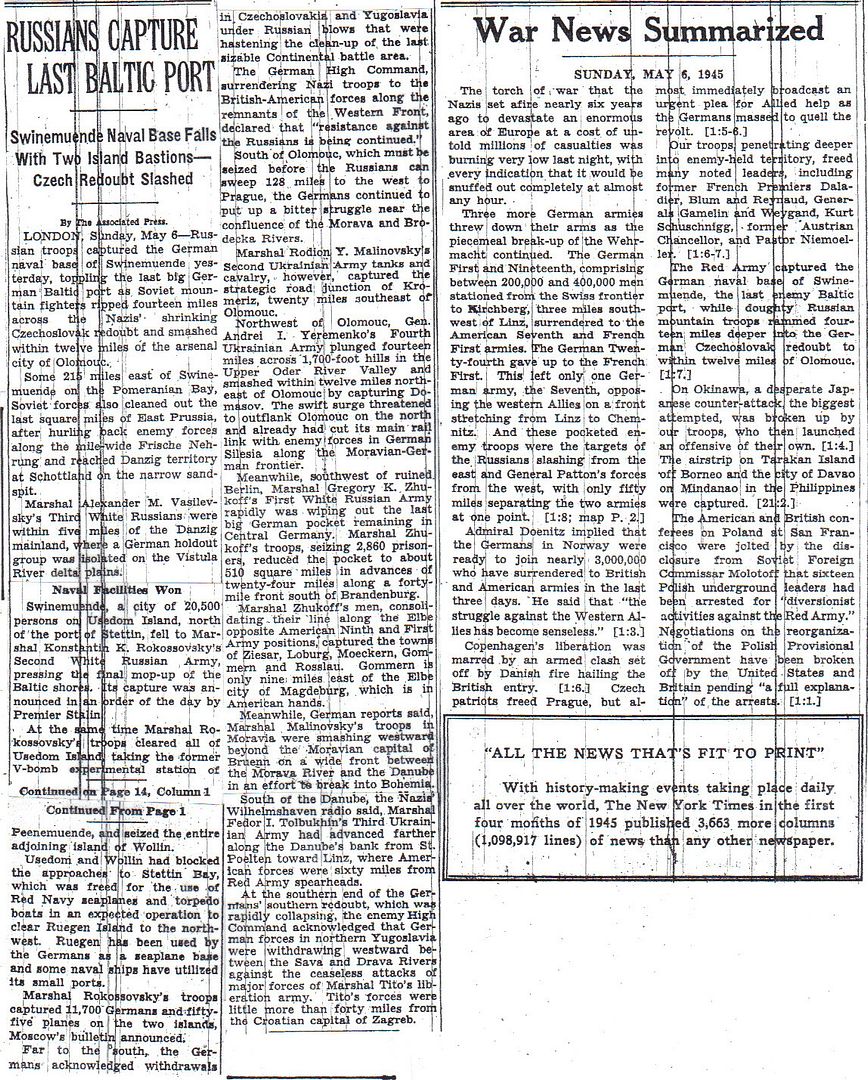
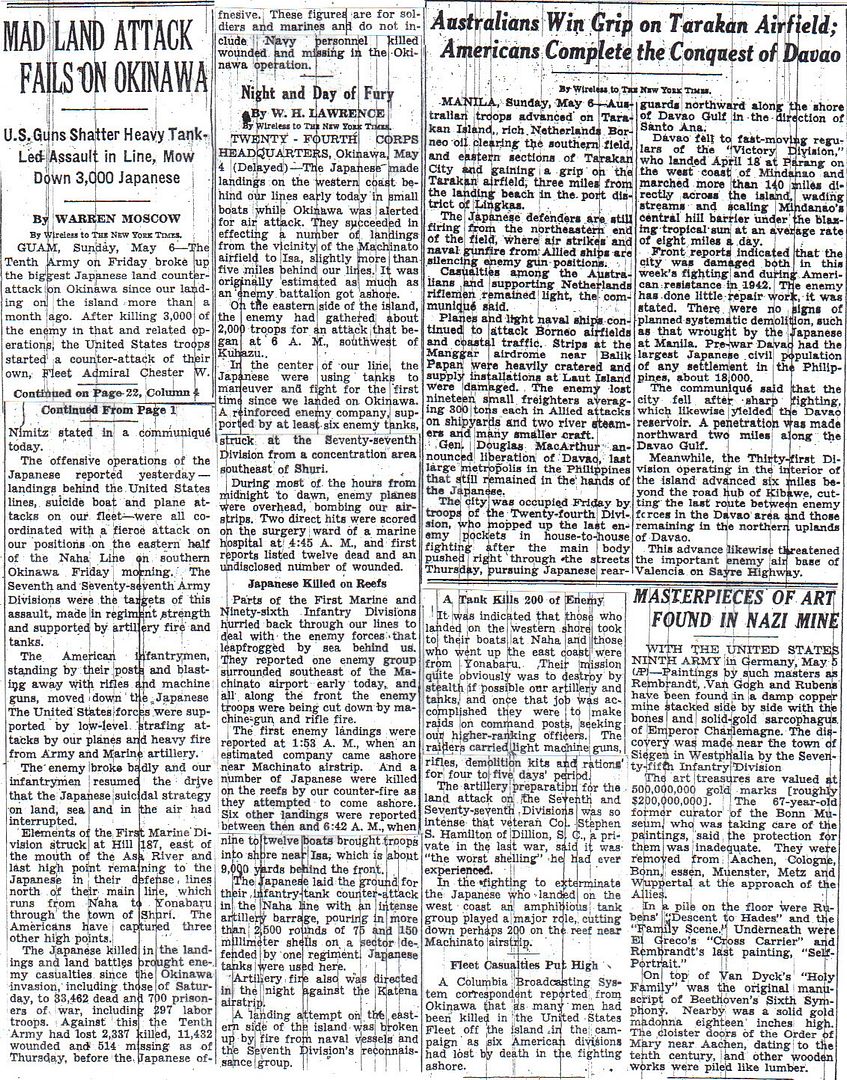
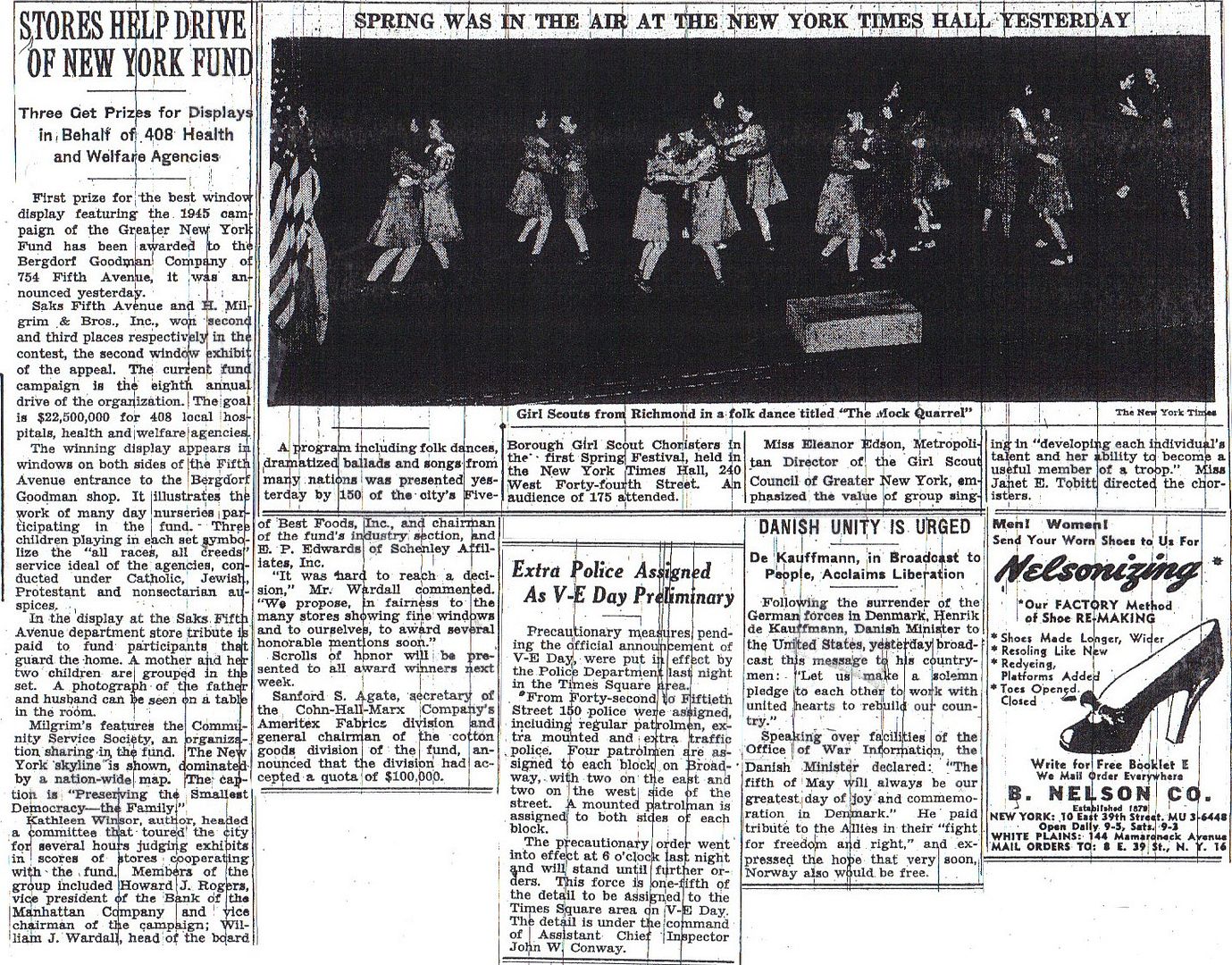
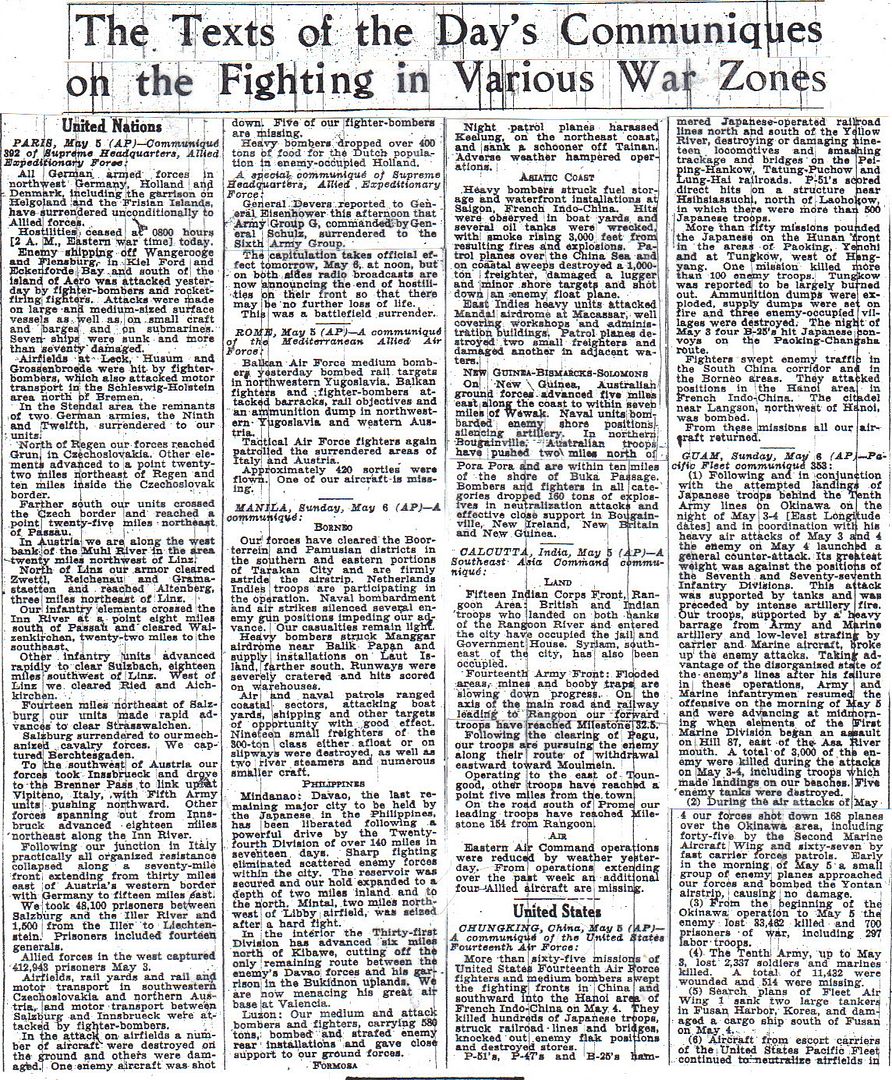
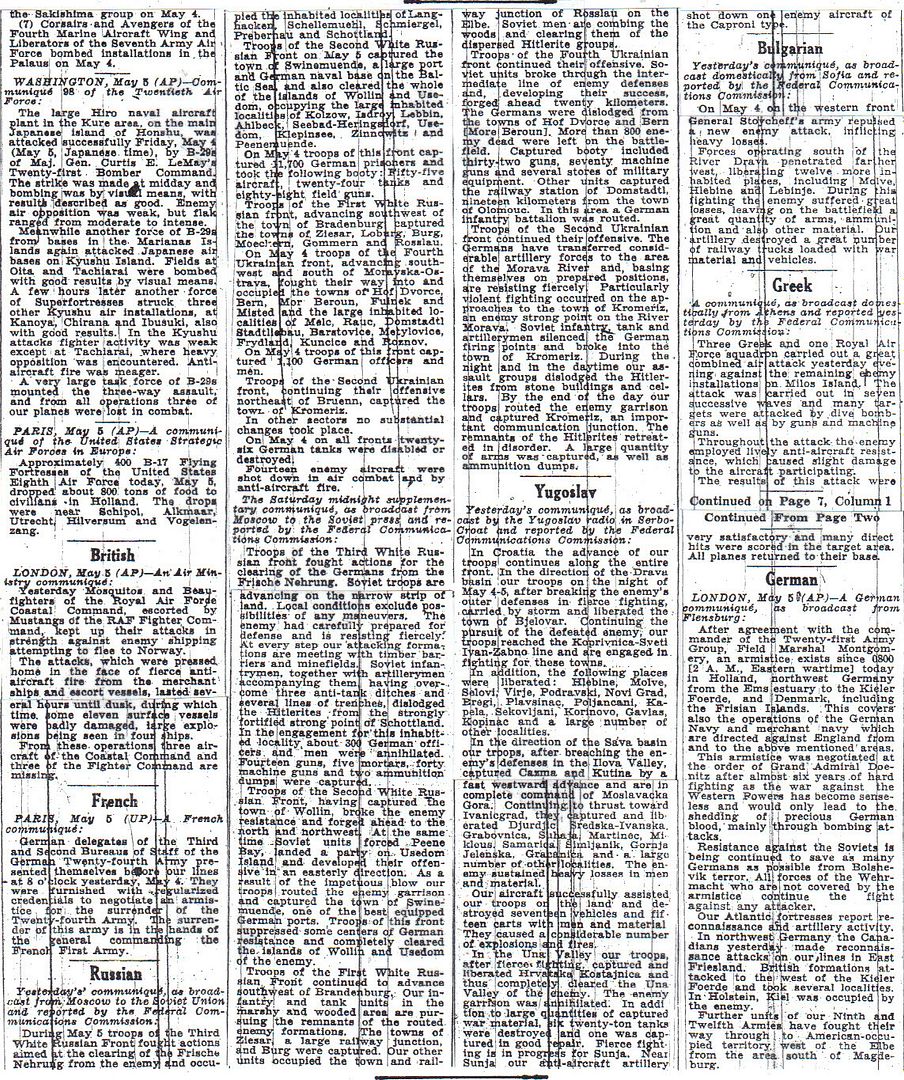
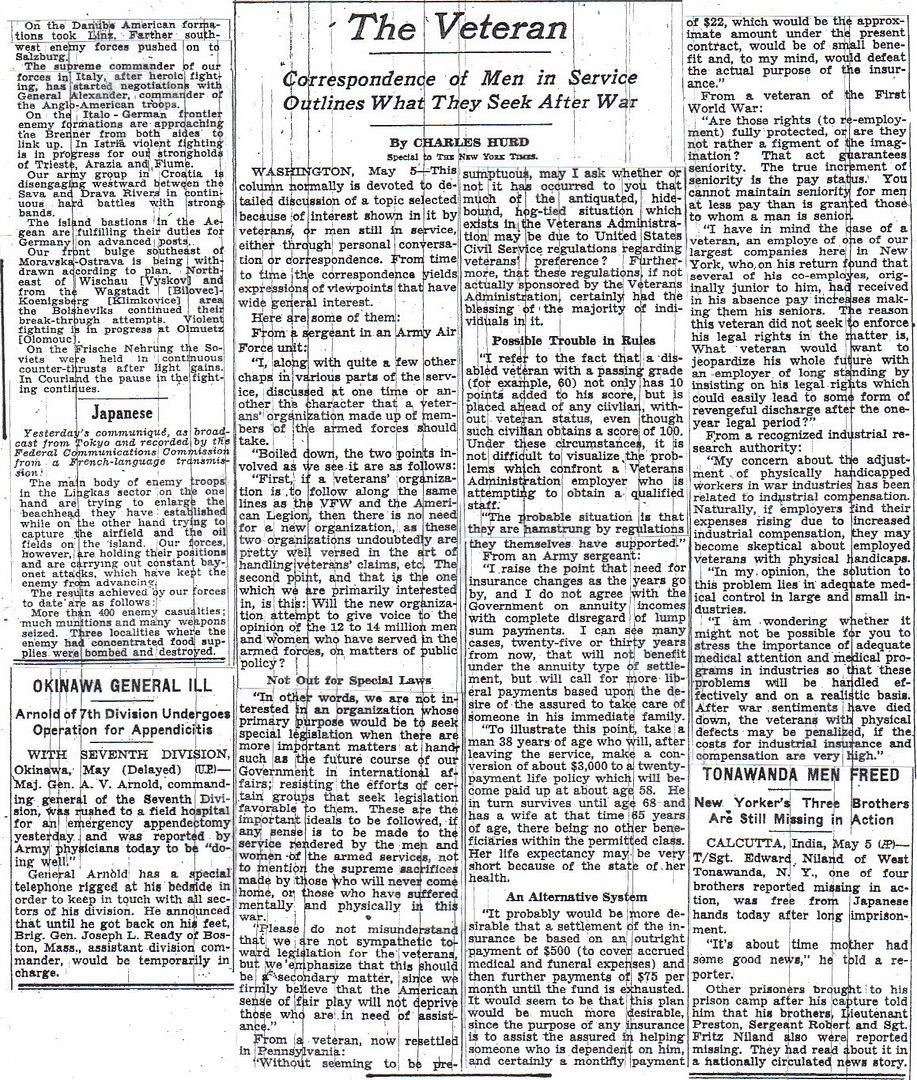
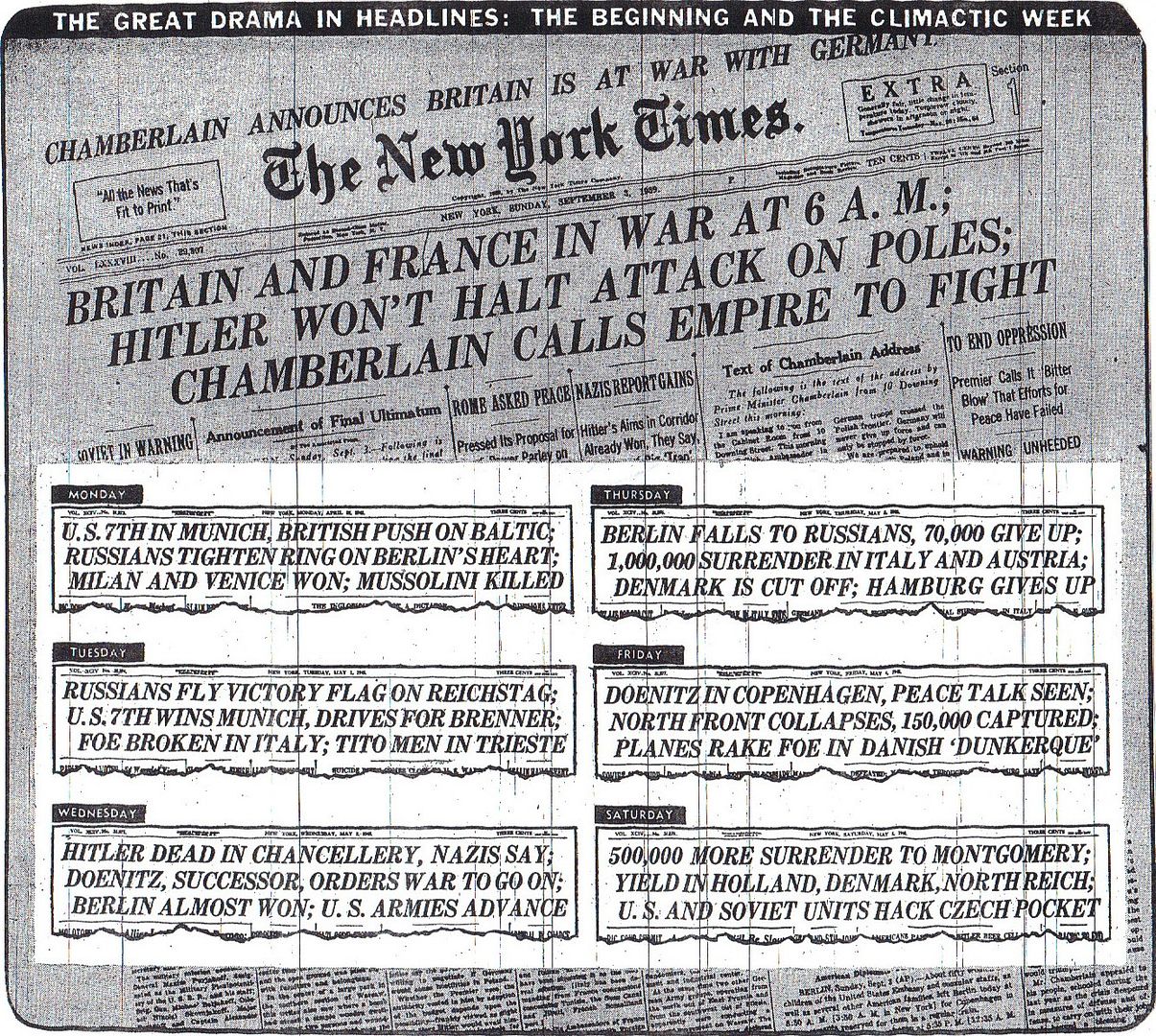
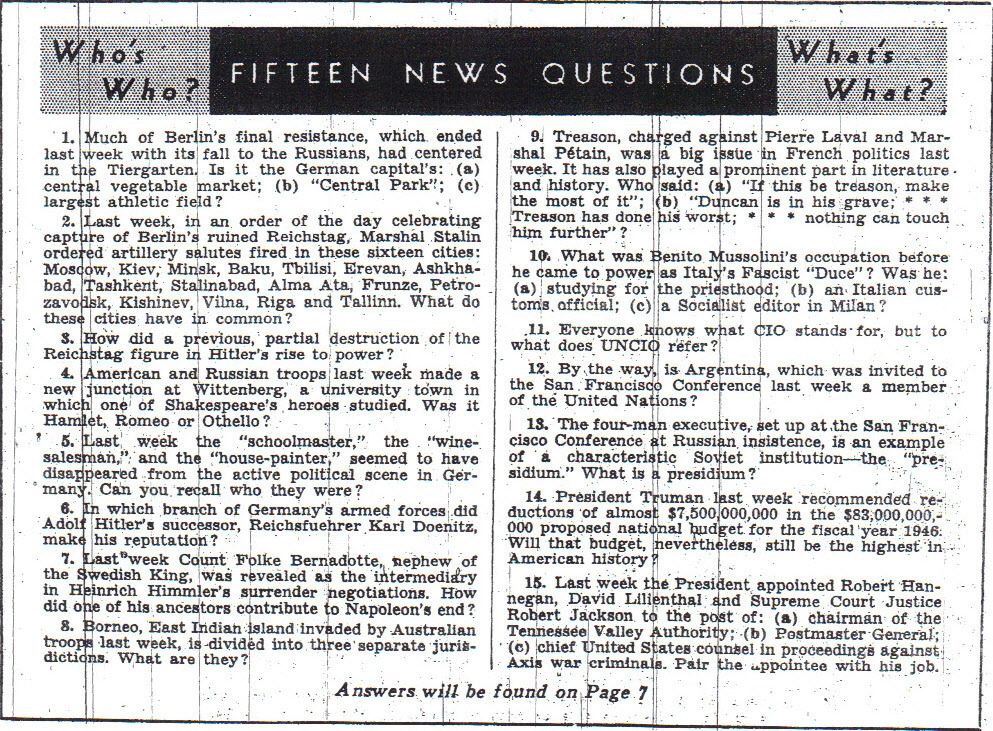
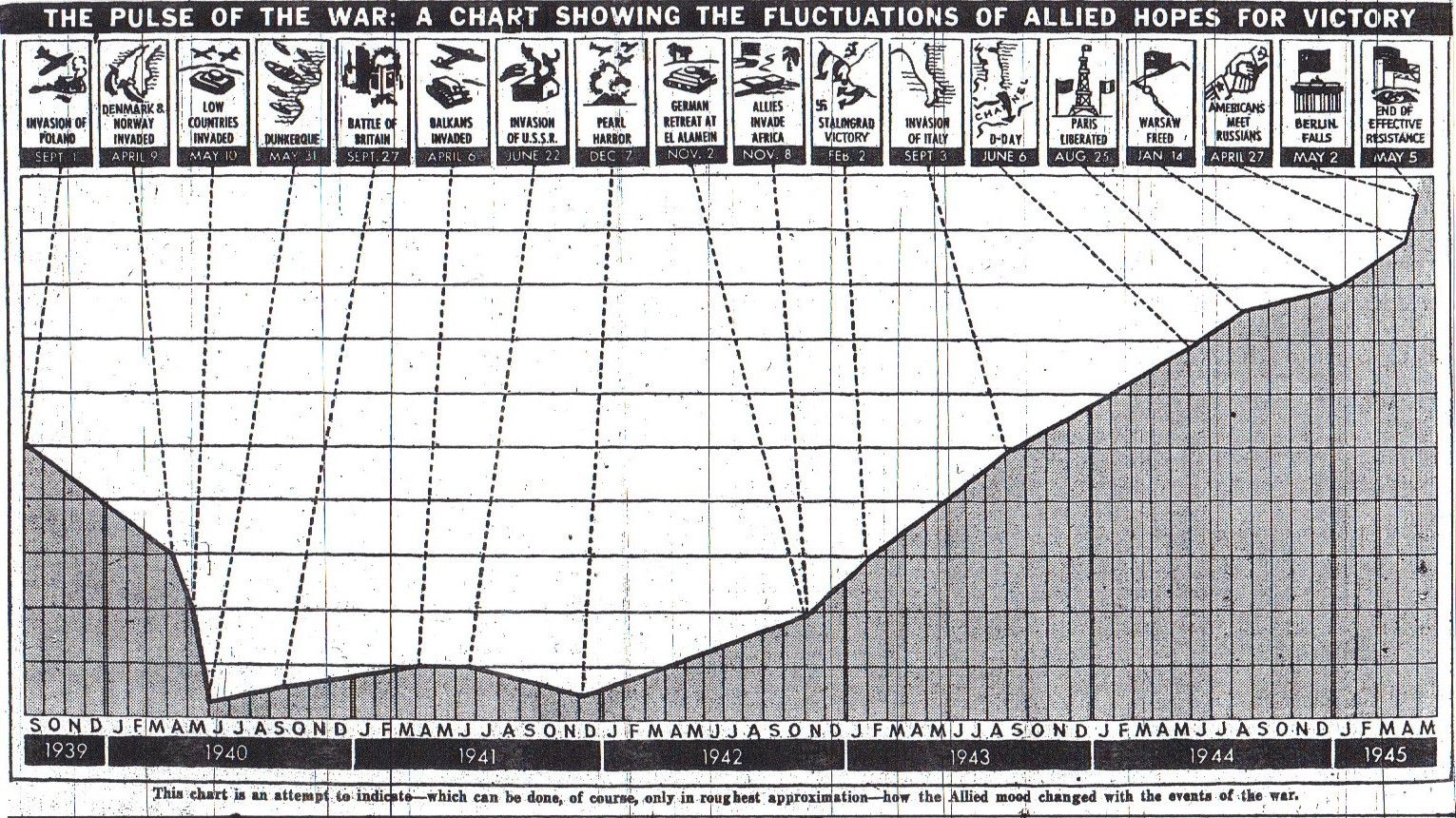
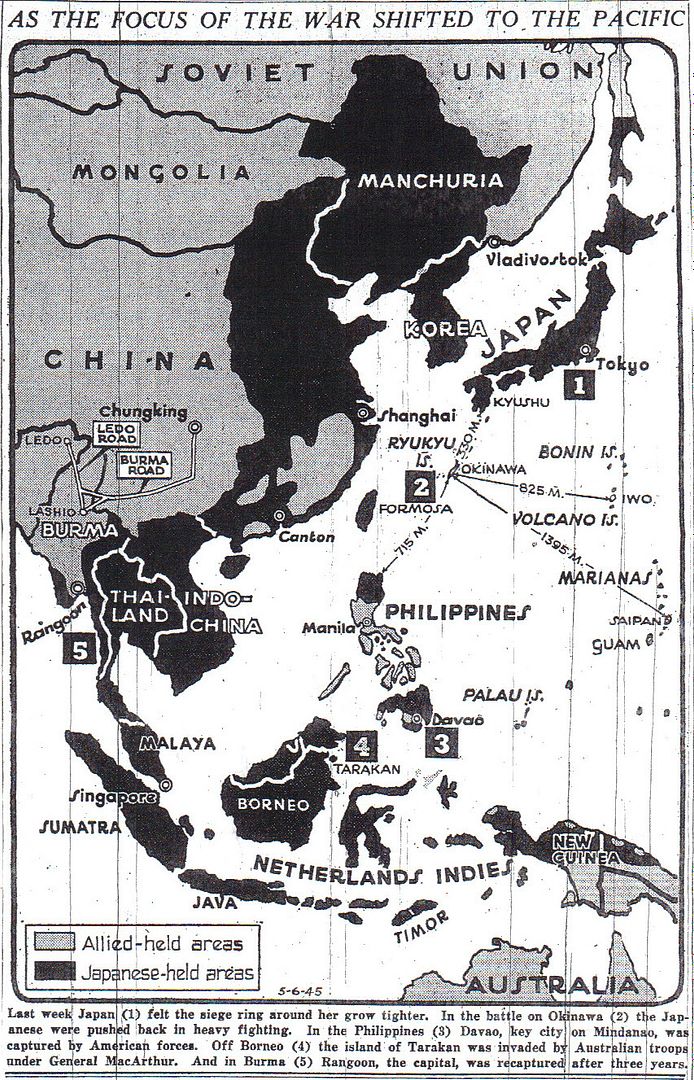
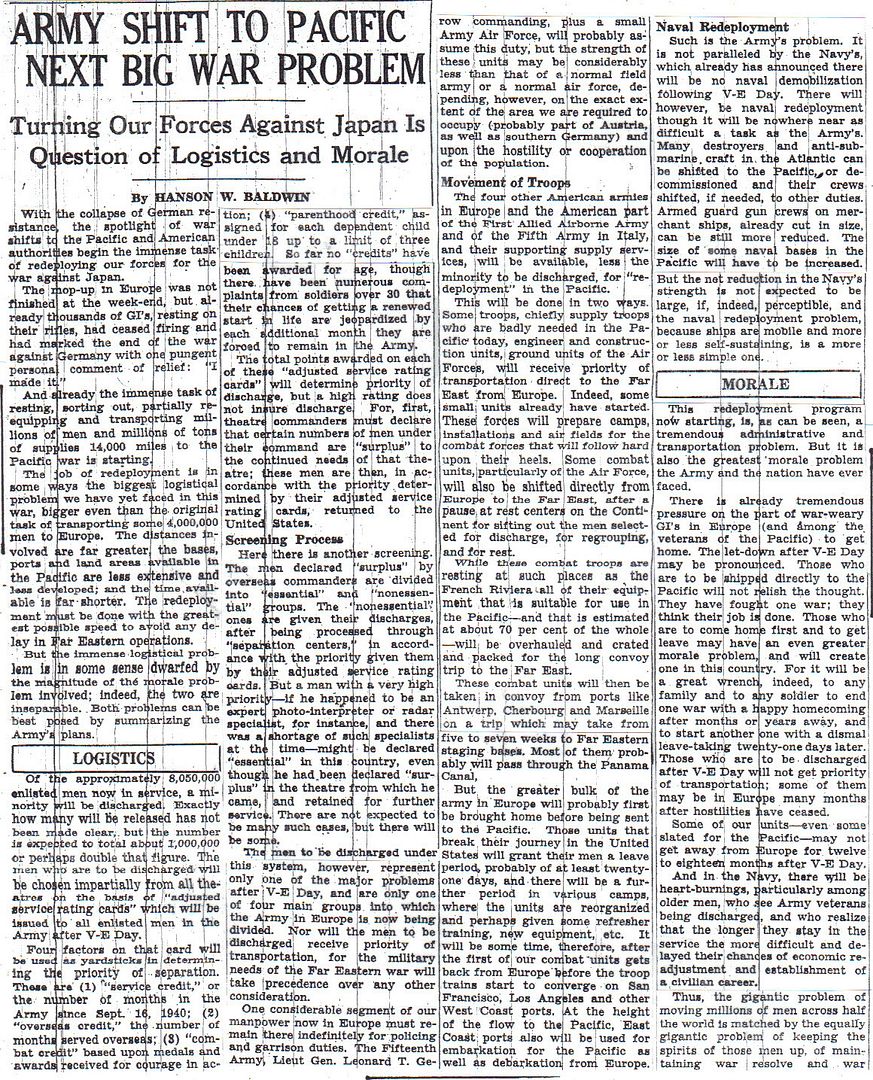
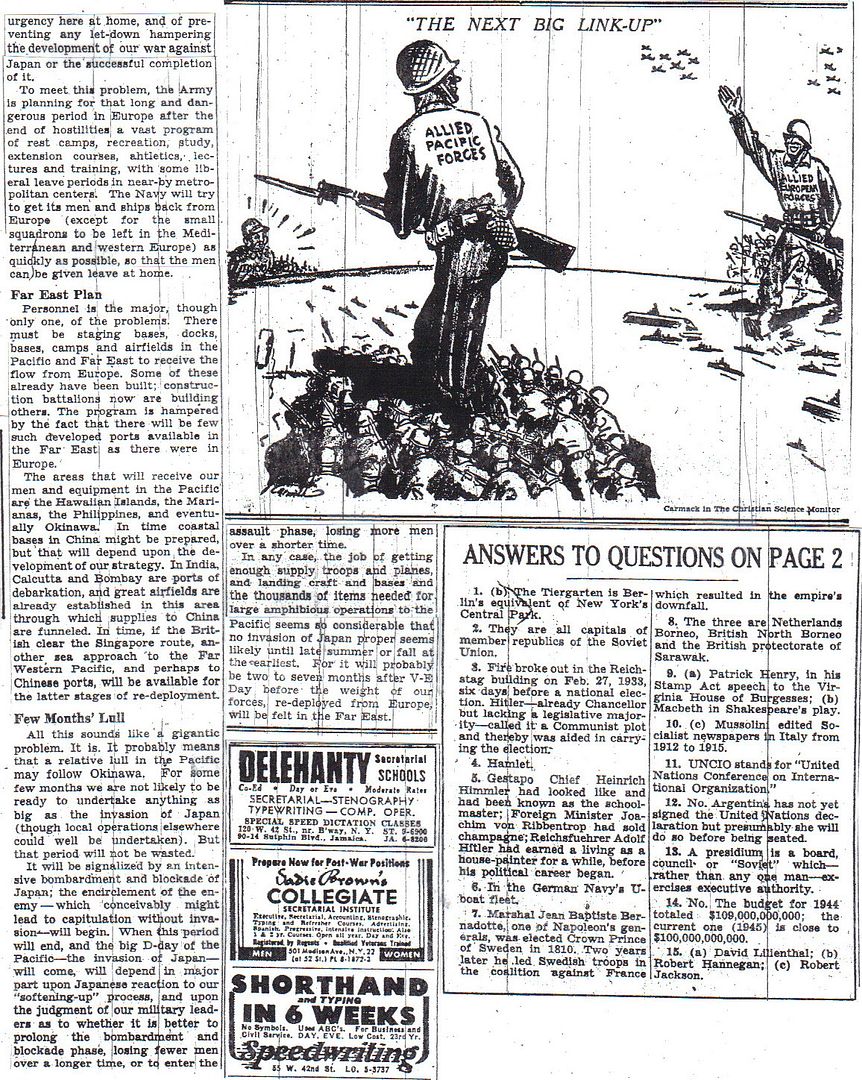
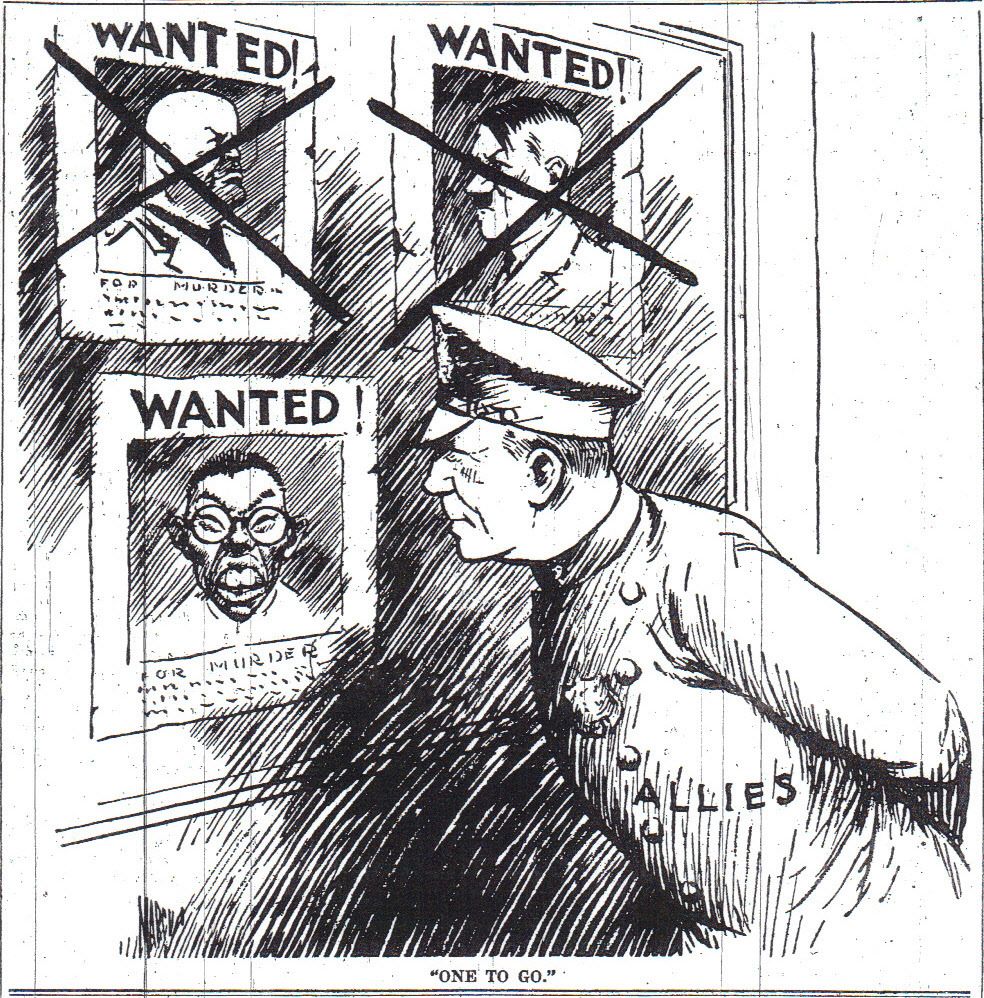
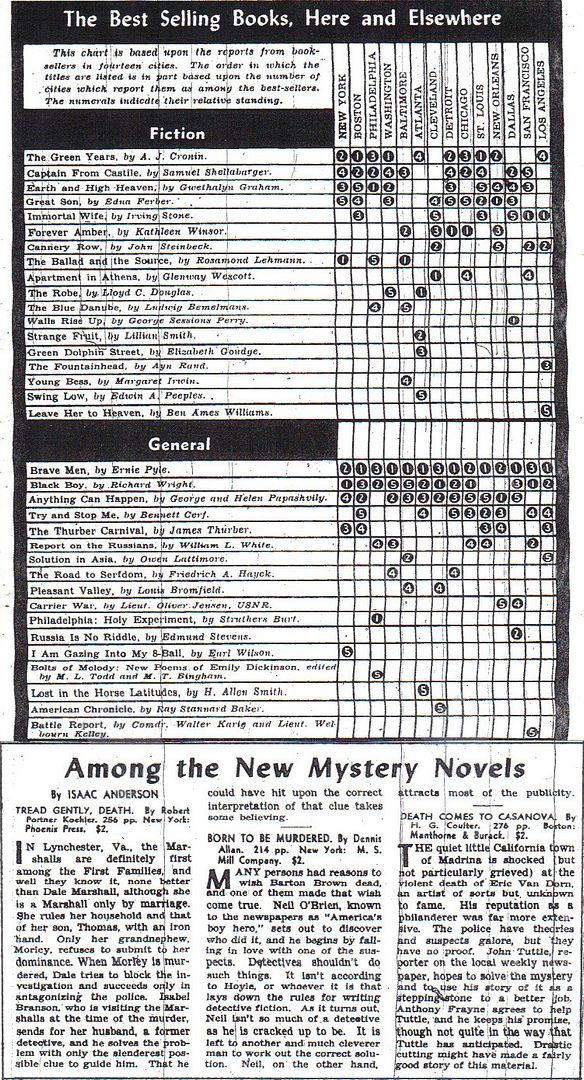
http://www.frontpagemag.com/2014/robert-orlando/the-foresight-of-patton/
The Foresight of Patton
...At the time of his death, Patton had been relegated to a desk job, overseeing the collection of Army records in Bavaria. That he had been an outspoken critic of Stalin and a vocal proponent of liberating Berlin and the German people from certain communist aggression triggered his sudden removal from the battlefield. In the aftermath of war, the Western powers sought to sideline the mercurial Patton and his incendiary views.
But Patton despised the politically driven circus and the media minions that carried out their dirty work. Still, he continued to speak out against the Russians as an American witness to their brutality during and after the war. As Stalin devoured Eastern Europe, Patton remarked, “I have no particular desire to understand them except to ascertain how much lead or iron it takes to kill them… …the Russian has no regard for human life and they are all out sons-of-bitches, barbarians, and chronic drunks.”
In early May 1945, as the Allies shut down the Nazi war machine, Patton stood with his massive 3rd Army on the outskirts of Prague in a potential face off with the Red Army. He pleaded for General Eisenhower’s green light to advance and capture the city for the Allies, which also would have meant containment of the Russians. British Prime Minister Churchill also thought the move a crucial and beneficial one for post-war Europe and insisted upon it, but to no avail. Eisenhower denied Patton’s request, and the Russians took the region, which would pay dearly for years to come. Earlier that year, at the February conference in Yalta, President Roosevelt, with Churchill at his side, extended the hand of friendship to “Uncle Joe” Stalin and signed his Faustian pact. In so doing, the destiny of millions was reduced to mass starvation, blood revenge, and distant gulags. At the time, Patton understood the tragedy of this event and wrote, “We promised the Europeans freedom. It would be worse than dishonorable not to see that they have it. This might mean war with the Russians, but what of it?”
Berlin also was given to Stalin’s Army as red meat to feed the dictator’s appetite for killing Germans. To some, including Patton, this was an unnecessary and devastating concession. In late April 1945, Patton claimed he could take Berlin in just “two days,” an assessment shared by the commander of the 9th Army, General William H. Simpson. As with Prague, Patton’s request to secure Berlin was denied. Sadly, after Patton finally reached the ravaged city, he wrote his wife on July 21, 1945, ” for the first week after they took it (Berlin), all women who ran were shot and those who did not were raped. I could have taken it (instead of the Soviets) had I been allowed.”
Conventional wisdom holds that Eisenhower’s choice not to capture the eastern capital cities was sober decision-making or that he was bound by the Yalta agreements, though he originally planned for Berlin and Prague. Many would argue that in the spring of 1945 the U.S. was fatigued with war and its military was in no condition to fight World War III. The Americans also needed the Russians to join the fight in the Pacific war, though the Russians never fulfilled that promise. Yet, the “what ifs” of history echo in Patton’s words: “The American Army as it now exists could beat the Russians with the greatest of ease, because, while the Russians have good infantry, they are lacking in artillery, air, tanks, and in the knowledge of the use of the combined arms, whereas we excel in all three of these.”
Moreover, Patton’s notion of meeting the enemy “now, rather than later” in retrospect seems not the mere wiles of a warmonger unable to embrace peacetime, but rather a worthy and prudent strategy of a seasoned tactician, even if a gamble. Stalin’s own records prove that he told his leaders to “play down” the Berlin invasion, aware that it was Europe’s crown jewel. Eisenhower, for all his discernment and skill at war management, did not see the Russians coming as did Patton and Churchill, who both recognized the wisdom of stopping Stalin in his tracks and perhaps offering Eastern Europe a chance at liberation.
Stalin had promised to liberate the capitals of Eastern Europe—Berlin, Prague, and Vienna—as well as Eastern Poland and the Baltic states. In his public broadcast dating back to November 1943 he promised, “The day is not far off when we will completely liberate the Ukraine, and the White Russia, Leningrad and Kalinin regions from the enemy; we will liberate . . . the people of the Crimea and Lithuania, Latvia, Estonia, Moldavia and Karelo-Finnish Republic.” Instead, history proves that Stalin was responsible for the murder and/or starvation of some 40 million Russians and Ukrainians during his reign of terror.
In light of the Red Army’s 20th century rampage, with unprecedented carnage and devastation and arguably the darkest time in Western history, was Patton not the sober warrior speaking truth to a political expediency or human fatigue? Was he not correct about Russian post-war intentions? Would not his attempt to push back his future foes and prevent further genocide have been worth the risk of another battle to secure the eastern capitals? We know the answer now, but Patton knew the answer then.
By the end of the war Patton was defeated. As Eisenhower prepared for the political stage, every misspoken or emotionally charged word uttered by his greatest fighting general threatened to undermine Eisenhower’s credibility and authority, as well as the progress of a post-war order. Patton’s outspoken and unsolicited opinions, coupled with his unwillingness to punish all German citizens during the de-Nazification period, caused Eisenhower to sideline the general. Patton believed in the righteous cause of the military and revealed his plans to fight those who were destroying its morale and who endangered America’s future by not opposing the growing Soviet threat. As a result, he was silenced. He would later say, “when I finish this job, which will be around the first of the year, I shall resign, not retire, because if I retire I will still have a gag in my mouth . . .”
...
Artillery is a great thing except when the P-47’s find it.
“The American Army as it now exists could beat the Russians with the greatest of ease, because, while the Russians have good infantry, they are lacking in artillery, air, tanks, and in the knowledge of the use of the combined arms, whereas we excel in all three of these.”
— General George C. Patton.
Right. Then it’s ex-tillery.
The Soviets had some pretty good air-to-mud aircraft too, didn’t they?
Yes but they didn’t have to face massive numbers of uncontested fighters. The West has Spitfires, Typhoons, Tempests, Meteors, Mustangs, P-47’s and P-38’s. The Soviets couldn’t face that while trying to shoot down clouds of B-17’s, Lancasters and B-24’s. Remember, the Soviets had almost no strategic bombers.
While I admire Patton as a commander, he was given to bluster. This statement falls into the bluster category, for the reason that it was simply wrong.
My dad’s cousin did an interview for a college kid that is online. He recounts the story where they came across two Brits that had been POWs of the Germans. Put them on their jeeps (small unit of forward recon).
The next day they came across a bunch of Germans and captured them (the fight was out of them). But they couldn’t do much with them and were about to let them go.
Then the Brits piped up “We’ll hold them in the farmhouse until your main force shows up.” So that’s what they did.
Some thought it was bluster when during the Battle of the Bulge Patton said he could turn the Third Army in the middle of battle and come to the aid of our troops who were encircled in Bastogne within a few days. But he pulled it off.
Late in the war he said he could take Berlin in two days. Do you think that was bluster? According to the article, General Simpson concurred.
Look, obviously it wasn’t in the cards that we were going all the way to Moscow.
But, I do agree that at a minimum we should have taken Berlin and Prague. I think we could have fairly easily done both, considering the timeline and the dispositions of the various forces.
At Yalta, Roosevelt was a dead man walking. Stettinus was a dunce, one who was surrounded by, and being manipulated by, communist agents.
As far as I’m concerned, they allowed themselves to be swindled out of eastern Europe. The Poles were once again betrayed, a betrayal that lasted almost half a century. And much of the Far East was sentenced to communist domination that continues to this day.
This whole exercise has solidified a number of opinions for me personally. One is that Eisenhower, as respectable as he was in so many ways, was by nature a squishy establishment Republican. He was a great bureaucrat, organizer, and diplomat, but he lacked vision — and in the end sufficient daring for the closing act of the war in Europe.
Patton may have been a blusterer at times, but he saw clearly what was coming in the aftermath of the war with Germany. Churchill caught up with him pretty quickly as events played out.
But our leadership never did really understand the entirety of what was unfolding. And by the time reality slapped them upside the head, it was too late to do anything about it but outlast the Soviet Union.
“Late in the war he said he could take Berlin in two days. Do you think that was bluster? According to the article, General Simpson concurred.”
I doubt the Germans in Berlin would have defended the city with the same tenacity against the Americans that they did with the Soviets.
I don’t think so either.
They might have blown Hitler’s brains out for him.
The lack of vision and boldness by American leaders continued right up until Ronald Wilson Reagan, who, along with his top adviser, Judge William P. Clark, consciously set out to bring down the Soviet Union, using Poland as a linchpin in the effort. As we now know, they succeeded beyond almost anyone else's wildest imaginations.

(And I don't think it is a coincidence that Reagan was a huge admirer of George Patton.)
Excellent quote by General Patton. Speaking of General Patton I am currently looking for some good books on him what would you suggest?
Norris was born in 1940.
Thanks for answering the question, henkster!
Remind me again; on what date did the United States Army occupy Eastern Europe in World War II? And on what date did it evacuate Eastern Europe and hand it over to the Red Army?
By golly, you’re right! lol...
Guess I got sucked in by that old joke....whoops. Sorry.
I understand. Possession is nine-tenths of the law and all that.
I just think that if we hadn’t had a nearly dead man, a dolt, and communists negotiating for us at Yalta, we could have enforced a much better outcome for the devastated people of central and eastern Europe.
Especially because our forces could have acted to take Berlin and Prague instead of sitting and waiting for the Russians to do the job.
In my opinion, it was short-sighted. And I have to wonder if there wasn’t a large element of vengeance-seeking on our own leaders’ part in letting the Russians rape and destroy so much the way they did.
Understandable, to a large degree,considering everything that had happened. But not necessarily right, and also not profitable, in the long run.
World War 2 is so full of those “might have beens” on all sides. It’s frustrating to see so many blown opportunities. I got over that frustration when I was able to look at history objectively and dispassionately; to see what really was, instead of what I wanted it to have been.
That’s where henkster’s law of alternate histories came from. Things happened the way they did because that’s how the people and nations drove the events of the time. A certain inevitability and fatalism. The Czar and his family were going to be murdered, the Bolsheviks would take over Russia, Stalin would murder millions, the USSR would dominate Eastern Europe, and then fall due to it’s internal defects. All of those things happened because they were going to happen. It’s interesting enough to seek understanding how and why they did.
Thank You!
Disclaimer: Opinions posted on Free Republic are those of the individual posters and do not necessarily represent the opinion of Free Republic or its management. All materials posted herein are protected by copyright law and the exemption for fair use of copyrighted works.